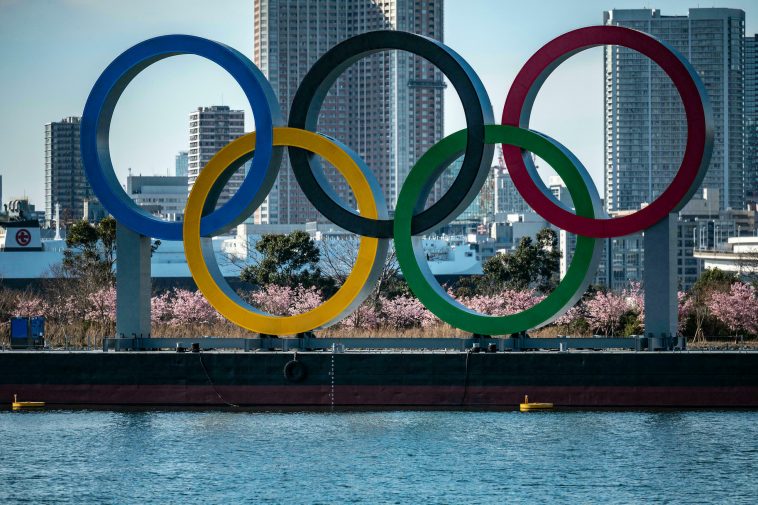Mahmud Jega
A last-minute gold medal bagged by its women’s volleyball team en canabled the United States to top the medals table at the Tokyo Olympics that ended yesterday. It edged out the Peoples Republic of China, but only just. USA had 39 gold, 41 silver and 33 bronze medals while China had 38 gold, 32 silver and 18 bronze medals. These two nations, already in hot competition to dominate the world’s economy and geopolitics in the 21st Century, have added sports to their theatre of competition.
With one silver and one bronze medal, Nigeria finished 73rd on the Tokyo medals table. We were tied in that spot with Jordan and Malaysia. Jordan had an excuse because King Abdullah was busy arresting his half-brother, former Crown Prince Hamzah, for alleged coup plotting. Malaysia however should be ashamed of itself because we expected it to repeat its feat of the 1960s, when it took a sample of Nigerian palm kernels and soon surpassed us in palm oil production.
Immediately below us, six countries tied at number 77 spot. They include Macedonia, Turkmenistan, and Namibia, which can be excused, but also Saudi Arabia, with its 300 billion barrels of oil reserves under the sand dunes. Saudis should henceforth shut up when we go to OPEC meetings. Seven countries tied in 86th place, including Ghana, which used to beat us hands down in the Ghana-Nigeria Games of the 1970s. In this league was Kuwait, every inch of whose soil is soaked in crude oil. Ghana and Kuwait should be ashamed of themselves because they tied on this spot with Syria, ravaged for ten years by barrel bombs.
Ninety-six countries that did not win any medal tied together in 93rd place. Some of them have good excuses. American Samoa, Andorra, Aruba, Belize, Cayman Islands, Cook Islands, Tonga, and US Virgin Islands were just too small. Cape Verde, Cyprus, Maldives, Samoa, and St Lucia were distracted by rising sea levels. Iceland can plead a very cold weather, while Afghanistan, Chad, Libya, Iraq, Somalia, and Yemen were too distracted by insecurity.
Haiti had a good excuse because its president was assassinated just before the games began. Lebanon can plead that it currently generates less electricity than Nigeria due to economic collapse, so how can its athletes train on Chouf mountains? Madagascar was too busy looking for an herbal remedy for COVID. Guam was distracted by strategic American bombers arriving and departing 24 hours a day. Nepal’s terrain was too mountainous for training. Palestine was distracted by Israeli missiles and the sound of Iron Dome intercepts while Vietnam was yet to find its sporting feet from the war that ended in 1975.
Other countries in this league however had no excuse. United Arab Emirates, which built the world’s tallest skyscraper, could not win even a bronze medal. Where is Al-Makhtoum’s magic? Singapore had no excuse; was there no chapter in Lee Kuan Yew’s book about how to win medals? All the luxury yachts in Monaco’s port couldn’t win a medal in kayaking. Pakistan, you have nuclear weapons, but you cannot win even a bronze medal at Tokyo?
Anyway, these were not even the most disappointing nations at Tokyo. Alhaji Mamman Shata used to sing that a camel is big for nothing because a goat kid’s balls are bigger than a camel’s. India, with its 1.3 billion people, finished 48th with only one gold, two silver and four bronze medals. Imagine; Bollywood now makes more films a year than Hollywood, but they could get only one gold, probably because of Indians’ vegetarian diet, which slows them down like the sloth.
Even Japan, which hosted the games, had camel-sized balls in this regard. Nearly 200 years since the Meiji Restoration, Nippon only managed 27 gold medals in its own backyard. Maybe that was why the Japanese government claimed a new COVID outbreak and prevented fans from attending the games, lest they ask why Toyota, Honda, Mitsubishi, Yashica and Sony together could not deliver more medals.
Great Britain, France, Germany, Italy, and Canada, which say they are the G7, only finished 4th, 8th, 9th, 10th, and 11th respectively. If we create a G7 in sports, most of them will not belong. Even USA, which topped the medals table by the skin of its teeth, are the number of gold medals it won proportionate to its share of the world’s combined GDP? Cutting edge technology does not matter on the sports field. Israel, which recently invented Pegasus spy ware, finished 39th with 2 gold and 2 bronze medals.
Some small countries punched above their weight at Tokyo. They include Cuba [7 gold], Kenya [4 gold], Jamaica [4 gold], Uganda [2 gold] and Ethiopia [1 gold]. Cuba used to do much better; it is already feeling the absence of the Castros. In Africa we are badly missing Kipchoge Keino, Filbert Bayi, Ben Jipcho, Abebe Bikila, Miruts Yifter, Haile Gebrselassie, John Akii-Bua, Faten Afifi, Ohene Karikari, Alice Annum, Chioma Ajunwa and Oliver Orok.
Three things have changed the Olympic medals table beyond recognition in the last 40 years. These are collapse of USSR, disappearance of East Germany and rise of China. Just look at the 1988 Seoul Olympics medals table, the last Olympics before the Soviet Union broke up into 15 independent republics. That year USSR topped the medals table with 55 gold, 31 silver and 46 bronze, beating USA to third place with 36 gold. You know who came second? East Germany, with 37 gold, 35 silver and 30 bronze. No wonder that Reader’s Digest said in an article that time that “no country mines Olympic gold as efficiently as East Germany, a nation of 17 million people.” West Germany swallowed up East Germany 31 years ago, but a united Deutschland only managed 10 gold in Tokyo, or one quarter of what GDR alone got 33 years ago.
Russian Federation, the world’s biggest country in terms of land area, managed 20 gold medals at Tokyo. I sat down and tabulated all the gold medals of the former Soviet Republics: Uzbekistan [3], Georgia [2], Ukraine [1], Belarus [1], Estonia [1], Latvia [1] plus Azerbaijan’s 2 silver, Armenia’s 2 silver, Kyrgyzstan’s 2 silver, Lithuania’s 1 silver, Turkmenistan’s 1 silver, Kazakhstan’s 8, and Moldova’s 1 bronze medals. Tajikistan was the only former Soviet Republic that came out empty handed. How I wished these countries had competed together in Tokyo under the red Hammer and Sickle flag.






